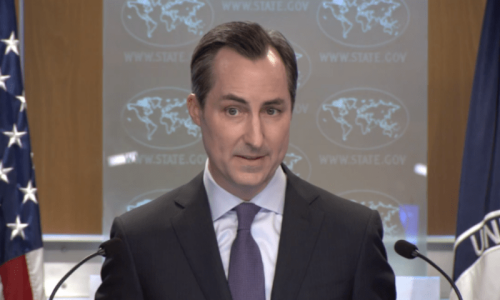IN 2012, Francis Fukuyama wrote: “The single most serious challenge to liberal democracy in the world today comes from China, which has combined authoritarian government with a partially marketized economy.”
Over the past 30 years, Mr Fukuyama recalled in a recent podcast with Foreign Affairs, “I’ve felt that China was the single system that could play that role because they were very successful economically, they were socially stable, politically coherent.”
“But I think in the end, it’s revealed certain weaknesses, when you concentrate that much power in a single leader. And I’m still not convinced that that’s the most sustainable model.”
“Now, of course, the American democratic model doesn’t look that stable or powerful either. So maybe we’re going to face a period of competitive decline,” the acclaimed author of The End of History told Dan Kurtz-Phelan of Foreign Affairs.
Rise of democratically-elected populists threatens rule of law, acclaimed author of The End of History tells Foreign Affairs podcast
In a wide-ranging conversation, the scholar of international relations noted that while the US election was the most important of all the ones occurring around the world this year, “I think that it’s not good for global democracy”.
“I think that [Donald] Trump’s victory has already been celebrated by all the wrong people… people like Viktor Orbán and Vladimir Putin … have all, I think, taken encouragement,” he said.
“It means in Europe, for example, that the National Rally in France, or Brothers of Italy, other populist political parties are going to jump on the bandwagon and push the entire region to the right.”
When asked if he sees Trump’s re-election as “a kind of historical hinge point” or “just one more step in liberalism’s retreat”, Mr Fukuyama said that in the case of populists, “the real threat is not to democracy, because they are for the most part legitimately elected: Erdogan in Turkey, Modi in India, Donald Trump in the United States. What they threaten in the first instance is much more the liberal part of liberal democracy—that is to say, the rule of law.”
Mr Kurtz-Phelan then asked about “similar manifestations of this crisis in places with very different political models, very different kinds of politics”. Recalling a 2020 article, where Mr Fukuyama noted that some of the effects of the Covid-19 pandemic were likely to be “the proliferation of conspiracy theories, the turn against establishments”, he asked, “How much of that is driving this global anger at incumbents and turning against incumbents globally?”.
“We didn’t realize it ... at the time as we were living through the end of the pandemic, but it had a big effect in discrediting existing governments,” Mr Fukuyama responded.
“A lot of that discrediting was unfair because a lot of them were trying to do their best, but the measures and the way it affected ordinary people were really quite large. Shutting an entire society down for months at a time. In a way, it’s amazing if that doesn’t have a big effect.”
Positing that the US is no longer in a good position internationally, he said: “the single thing that is the real measure of American decline is our internal polarization, because it doesn’t matter how good your economy is or how powerful your military is.”
“I think that we’re already living in an era where our domestic internal divisions are weakening [US] global credibility,” he concluded.
Published in Dawn, November 23th, 2024














































Dear visitor, the comments section is undergoing an overhaul and will return soon.